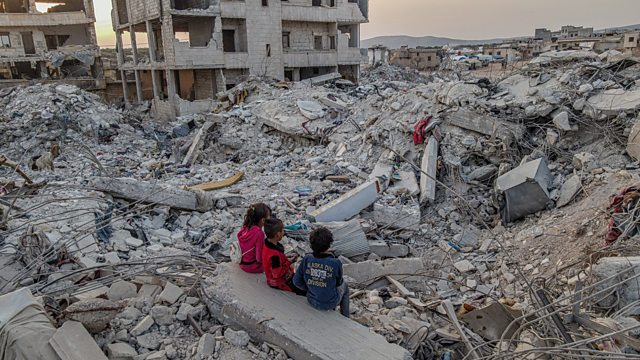How to cope with earthquake trauma
Earthquake trauma; Tsetse fly traps; respiratory health; global obesity report; can socialising help you live longer?
A month on from the devastating earthquakes in Turkey and Syria, we assess what kind of impact the disaster may have had on mental health.
We hear from Professor Metin Basoglu, an expert in earthquake trauma and director of the Istanbul Centre for Behavioural Sciences. He explains how it is a unique kind of trauma rooted in fear and compounded by the uncontrollable nature of earthquakes and the thousands of aftershocks that come following the initial disaster.
Prof Basoglu tells us about the psychological treatment he developed based on his research with 10,000 survivors of the 1999 earthquake in Turkey and how an earthquake simulator can be used to tackle trauma symptoms.
We hear from researchers in the US and Kenya about a new discovery that has ended 100 years of searching for an airborne chemical that could hold the key to the way tsetse flies mate – and help to tackle the diseases they spread in humans.
Our guest in the studio is family doctor Ann Robinson who has the latest research on global health. Could socialising more often be linked to a longer life? And why might half of the world’s population be obese by 2035? We’ll explore all this and more.
Presenter: Claudia Hammond
Producer: Gerry Holt
Image: Survivors of the earthquake in the city of Jenderes in the countryside of Aleppo, north-western Syria.
Credit: NurPhoto / Contributor
Last on
More episodes
Broadcasts
- Wed 8 Mar 2023 20:32GMT�鶹�� World Service Online, Americas and the Caribbean, UK DAB/Freeview & Europe and the Middle East only
- Wed 8 Mar 2023 21:32GMT�鶹�� World Service Australasia, South Asia, News Internet & East Asia only
- Thu 9 Mar 2023 04:32GMT�鶹�� World Service Australasia, Americas and the Caribbean, South Asia & East Asia only
- Thu 9 Mar 2023 13:32GMT�鶹�� World Service
- Thu 9 Mar 2023 18:32GMT�鶹�� World Service East and Southern Africa & West and Central Africa only
- Sun 12 Mar 2023 02:32GMT�鶹�� World Service except Americas and the Caribbean, Australasia, East Asia & South Asia
Podcast
-
![]()
Health Check
Health issues and medical breakthroughs from around the world.


